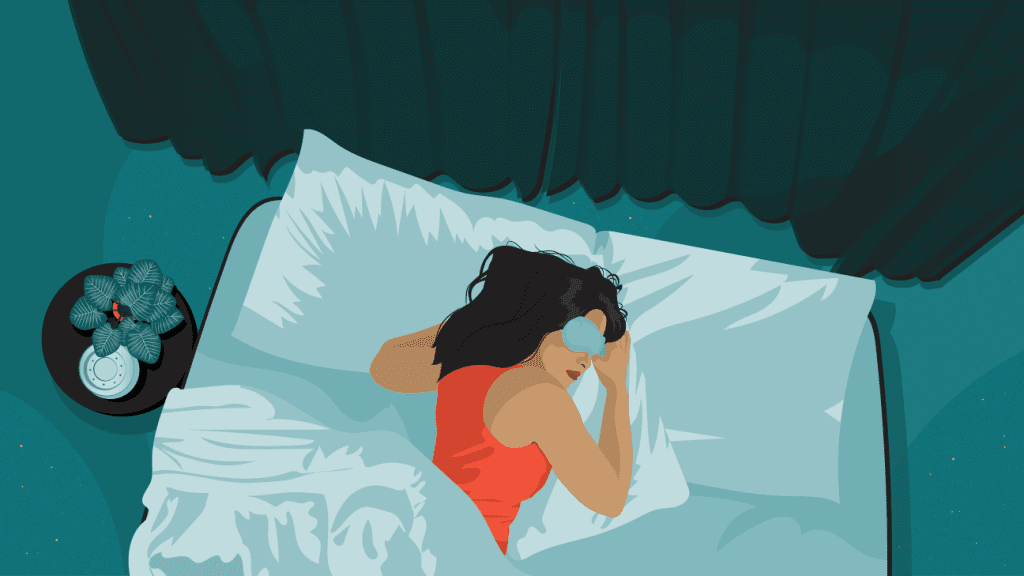Waking up in the middle of the night can be incredibly frustrating, especially if it’s been happening consistently for years. If you find yourself wide awake between 3am and 5am, you’re not alone. Many people experience these early-morning wakeups, often without knowing why. In this article, we’ll explore the reasons behind these disruptions, the science of sleep cycles, and practical strategies to help you sleep through the night and wake up feeling refreshed.

Understanding Sleep Cycles: Why 3am to 5am?
Sleep cycles are the backbone of a restful night. Each night, we progress through multiple cycles, each lasting around 90 minutes, which include light sleep, deep sleep, and rapid eye movement (REM) sleep. The early morning hours between 3am and 5am are often dominated by lighter sleep stages, including REM, during which the body is more susceptible to waking up. If your sleep cycle is disrupted at this stage, it’s easier to wake up and harder to fall back asleep.
Common Reasons You Wake Up at 3am
Several factors can contribute to waking up during these early hours. Let’s delve into some of the most common causes and discuss how each might impact your sleep.
1. Physical Health Conditions
Physical health issues often play a significant role in sleep disturbances. Common culprits include:
- Sleep Apnea: This condition, marked by irregular breathing during sleep, often causes frequent awakenings.
- Chronic Pain: Conditions like arthritis or fibromyalgia can lead to discomfort, resulting in sleep interruptions.
- Hormonal Changes: Women, particularly those going through menopause, may experience hormonal fluctuations that interfere with sleep.
Each of these issues can cause a break in your sleep cycle, leading to unwanted wakefulness in the early morning.
2. Mental and Emotional Stressors
Our mental and emotional state has a profound impact on sleep quality. Stress, anxiety, and depression are frequent contributors to nighttime wakefulness:
- Cortisol and Stress: Elevated cortisol levels, the body’s stress hormone, can make it difficult to stay asleep.
- Overthinking and Worry: Stressful thoughts or anxious feelings can leave your mind racing, making it tough to return to sleep if you wake up during the night.
The early morning hours are particularly prone to this phenomenon, as your brain becomes more active, preparing for the day ahead.
3. Lifestyle and Environmental Factors

Our habits and surroundings are often overlooked when assessing sleep quality. A few factors to consider include:
- Irregular Sleep Schedule: Going to bed and waking up at different times each day can disrupt your body’s natural rhythm.
- Caffeine and Alcohol: Consuming stimulants or depressants close to bedtime can interfere with sleep, making early-morning awakenings more likely.
- Screen Time: The blue light from devices like phones and laptops can affect your body’s production of melatonin, the sleep hormone, disrupting your ability to fall and stay asleep.
How to Improve Your Sleep Quality
Now that we’ve identified some common reasons for waking up at 3am, let’s explore strategies to help you achieve a more restful night.

1. Establish a Consistent Sleep Routine
Creating a regular sleep schedule helps regulate your body’s internal clock, making it easier to fall asleep and wake up naturally. Here are some tips:
- Set a Bedtime: Aim to go to bed and wake up at the same time every day, even on weekends.
- Wind Down Gradually: Spend 30 minutes before bed doing something relaxing, like reading or practicing mindfulness.
2. Optimize Your Sleep Environment
Your sleep environment plays a critical role in the quality of your rest. Make sure your bedroom is a calming place:
- Keep It Cool: A slightly cool room temperature is ideal for sleep.
- Minimize Noise and Light: Consider blackout curtains, a white noise machine, or a sleep mask to reduce disruptions.
- Invest in Comfort: A good-quality mattress and supportive pillows can make a big difference in your sleep quality.
3. Practice Mindfulness and Relaxation Techniques
Mindfulness and relaxation exercises can be incredibly effective in reducing stress and helping you fall back asleep if you wake up. Techniques to try include:
- Meditation: Focusing on your breath or using a guided meditation can help calm your mind.
- Progressive Muscle Relaxation: This technique involves tensing and then relaxing each muscle group in your body, helping you release physical tension.
4. Limit Caffeine and Alcohol Intake
What you consume in the hours leading up to bed can impact your sleep. Avoid caffeine after midday, and limit alcohol close to bedtime, as it can disrupt your sleep cycles, even if it initially makes you feel drowsy.

When to Seek Professional Help
If you continue to experience frequent wakeups between 3am and 5am, it may be time to consult a healthcare provider or sleep specialist. They can perform assessments to determine if there are any underlying medical conditions, such as insomnia or sleep apnea, that require treatment. In some cases, they may recommend therapies like cognitive-behavioral therapy for insomnia (CBT-I) or medication to help regulate your sleep.
Conclusion
Waking up consistently between 3am and 5am can have a significant impact on your quality of life, but understanding the underlying causes can empower you to take control of your sleep. By addressing factors such as health conditions, stress levels, and lifestyle habits, you can create a sleep-friendly environment and establish routines that support restful sleep. Remember, quality sleep is essential for overall well-being, so make it a priority and take proactive steps to improve your nightly rest.
Take charge of your nights, and you’ll wake up ready to seize the day!


